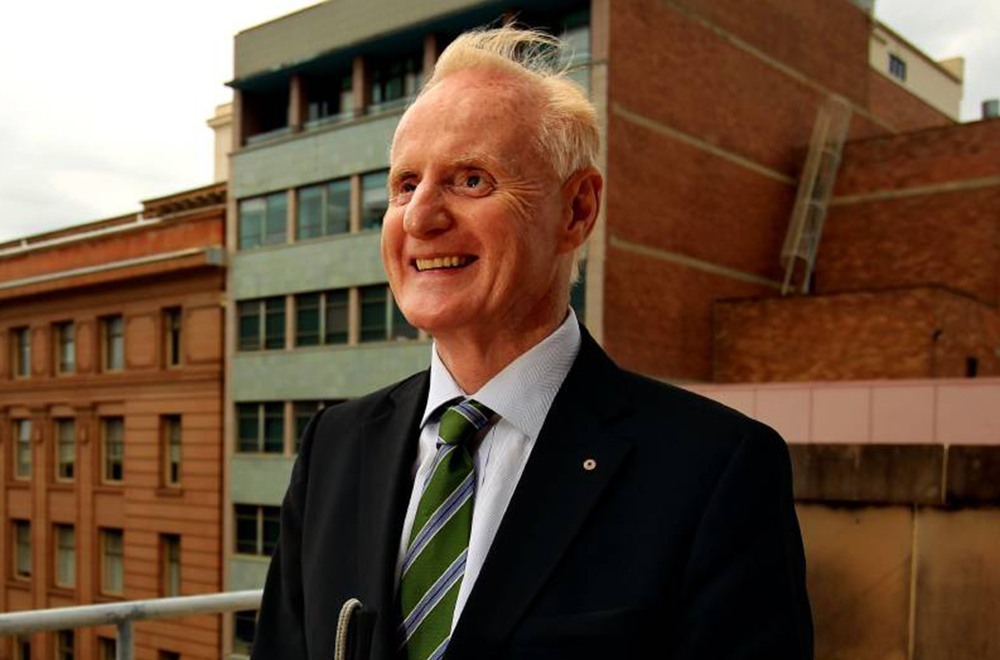Australia is not upholding all its responsibilities under the United Nations Convention on the Rights of Persons with Disabilities, a report for the Disability Royal Commission has found.
It revealed that Australians with disability were more likely to be unemployed, while First Nations people with disability experienced great hardship,
Emeritus Professor Ron McCallum, pictured, who is blind, examined the articles of United Nations Convention on the Rights of Persons with Disabilities to determine how well Australia is doing in improving the lives of its citizens with disability.
His report, ‘The United Nations Convention on the Rights of Persons with Disabilities: An Assessment of Australia’s Level of Compliance’, was released on October 8.
On the subject of incarceration, McCallum’s report noted Australia is not upholding Article 14 of the Convention, which states that people with disability cannot be kept in prisons or hospitals just because of their disability.
“Where a person with an intellectual disability is accused of committing a crime, a court may decide that the person could not understand what happens in a court. Often the judge will simply order that the person remain in a mental health facility,” his report said.
Australian governments have been working on programs to take people with intellectual disability out of detention and be kept with their families or in group homes.
While Australia does have a number of programs to promote the employment of people with disability, Australians with disability still have low levels of employment.
McCallum found while Australia does have a series of laws prohibiting disability discrimination, the requirement to accommodate a persons’ disability under federal law should be widened to fully comply with article 5 of the Disability Convention. This states that such people cannot be discriminated against because of their disability.
“Australia’s laws should also make it easier to assist persons who are discriminated against in two or more ways because of their disability, gender and/or ethnicity,” his report found.
His wide-ranging assessment also covered Convention Articles relating to the explanation of disability, transport, women and girls with disability, children, and emergencies, such as bushfires and the Covid-19 pandemic.
“Australia does have emergency plans. These plans should be updated to make it clear that people with disability require assistance during emergencies. The Disability Royal Commission made a statement on March 26, 2020 about the Covid-19 virus. The Disability Royal Commission reminded governments that they must always remember people with disability when making their emergency plans.”
In other areas, the report found the laws about mental health and guardianship need to be changed to ensure that people with disability are supported to make decisions, while laws needed to be altered to allow those people with intellectual disability, who are not entitled to vote, to do so.
As well, more training of judges and other people who work in courts was needed to allow blind or deaf people to be appointed as jurors.

